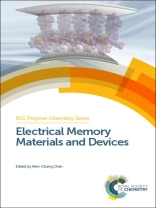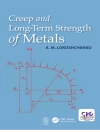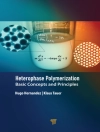Information technology is essential to our daily life, and the limitations of silicone based memory systems mean a growing amount of research is focussed on finding an inexpensive alternative to meet our needs and allow the continued development of the industry. Inorganic silicone based technology is increasingly costly and complex and is physically limited by the problems of scaling down. Organic electrical memory devices are comparatively low cost, offer flexibility in terms of chemical structure, are compatible with flexible substrates and allow easy processing. For these reasons polymeric memory nanoscale materials are considered by many to be a potential substitute for conventional semiconductor memory systems. This edited book focusses solely on organic memory devices, providing a full background and overview of the area before bringing the reader up to date with the current and ongoing research in this area. The broad appeal of this book will be applicable to a wide range of researchers and those working in industry, in particular those working in materials, electrical and chemical engineering.
Table of Content
Organic Based Electrical Memory Devices; Organic Resistor Memory Devices; Donor-Acceptor Organic Molecules for Resistor Switching Memory Devices; High Performance Polyimides for Resistive Switching Memory Devices; Nonconjugated Polymers with Electroactive Chromophore Pendants; Polymer Composites for Memory Device Applications; Conjugated Polymers for Memory Device Applications; Non-Volatile Memory Properties of Donor-Acceptor Block Copolymers; Organic Transistor Memory Devices and Materials; Organic Floating Gate Transistor Memory Devices; Organic Ferroelectric Memory Devices; Summary and Outlook












